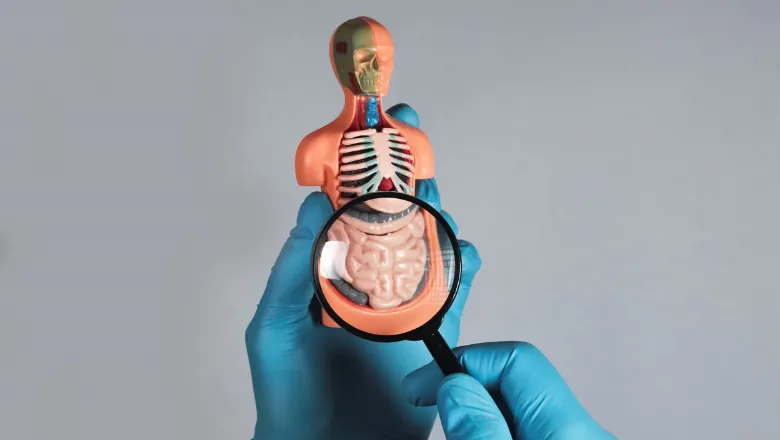I am delighted to see our work published and shared with the wider community. I am grateful to all the patients who participated and our fantastic collaborators from the NHS, academia and Janssen Pharmaceuticals who contributed to this work. Importantly, I am thankful to Nick Powell, my mentor and senior author of the paper for his trust and guidance. I am hopeful that we can translate the lessons we learned to better tailored treatments and outcomes for our patients.”
Dr Polychronis Pavlidis, Lead Author
17 October 2022
Studies reveal complexity of immune responses in patients receiving treatment for Crohn's disease and ulcerative colitis
The findings provide a better understanding of the interactions between the immune system and epithelium, with potential to inform novel treatments.

The inflammatory bowel diseases Crohn’s disease and ulcerative colitis are long term, incurable conditions driven by gut inflammation. Both can lead to poor quality of life, increased risk of cancer and severe complications.
In order to personalise care to the individual, improve the use of available treatments and – importantly – develop medical cures, it is necessary to better understand the interactions between the immune system and the epithelium, the layer separating the host (ourselves) from the environment.
Dr Polychronis Pavlidis, from the School of Immunology & Microbial Sciences, in collaboration with the Nick Powell Lab at Imperial College London, recently published findings from two studies in Nature Communications and Cell Reports. The studies use human colonic organoid (3D models of the human epithelium) to map how gene expression is regulated by cytokines, the key chemicals that mediate immune responses and control inflammation.
The maps allowed the researchers to identify a large overlap across different cytokines on the regulation of gene expression, as well as highlight signalling bottlenecks. Associating these maps with the gene expression changes seen in inflammatory bowel diseases, they were able to separate patients in groups with prognostic implications.
Unexpectedly, rather than separating based on the type of predominant immune response, patients were grouped by a gradient of immune response complexity. Those patients with multiple immune responses did not benefit from advanced therapies that target only some of those responses.
The researchers were able to show that the gene expression regulated by interleukin 22, a cytokine considered to play a key role in fighting infections and helping the epithelium regenerate, is enriched in the gut of patients with ulcerative colitis.
Surprisingly, higher expression of these interleukin 22 regulated genes was associated with higher risk of non-response to ustekinumab, a recently introduced advanced therapy. Using data from a large phase 3 clinical trial and an animal model of ulcerative colitis, the researchers showed that interleukin 22 regulates the influx of neutrophils to the epithelium and contributes to gut inflammation and disease.
These findings add to the researchers’ understanding of the immune-epithelial interactions at the gut barrier, paving the way for personalised medicine approaches in inflammatory bowel diseases. They are now focused on refining their predictive tool and incorporating it into treatment pathways that will allow for a more personalised approach patient management.
Sharing his gratitude to all who participated in the research, Dr Pavlidis said:

